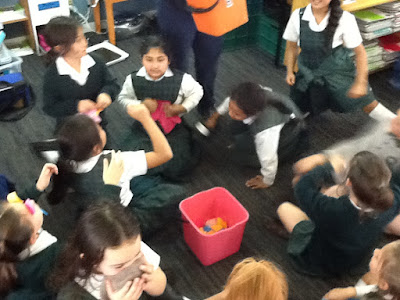Water Care Lesson #1
On Thursday 9th June the Middle Team had our first lesson from Water Care. First we experiemnted with the different states water can come in - solid (ice), liquid (water) and gas (water vapour/steam).
We were reminded about the water cycle and then took it one step further... We learnt how the water gets to our homes and schools!
We learnt about how people use dams, pipes, water filter stations and storage tanks to get the fresh water from our rivers and make it safe to drink and use.
We acted out the journey as a class, getting dirty and polluted, travelling through pipes, getting filtered and stored, before flowing nice and clean out of our tap.
Room 7 watching how condensation can form on a tray over boiling water.
We tested that condensation feels wet.
Room 7 students are water drops in a river getting contaminated by cow pats.
A dead eel, killed by chemicals, pollutes the water droplets even more.
A river flowing with our polluted water drops.
Flowing through the pipe to the water filter station.
Filtering the floc (pollution particles) out of the water.
Now nice and clean, the water flows through another pipe into the water storage tank, waiting to be used.
Finally the clean water flows out of the tap.
The water cycle is ready start again!












